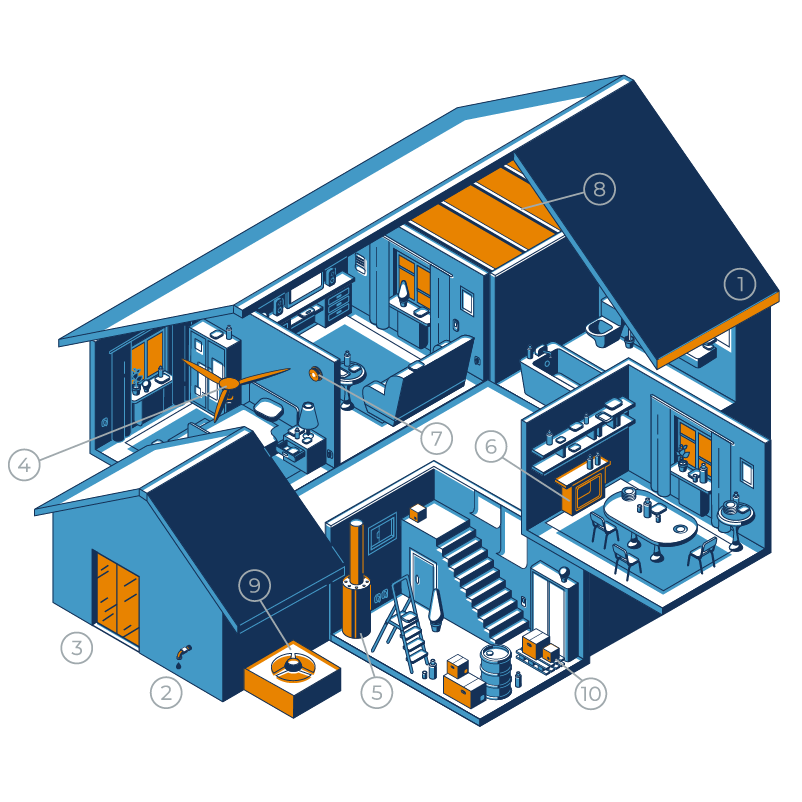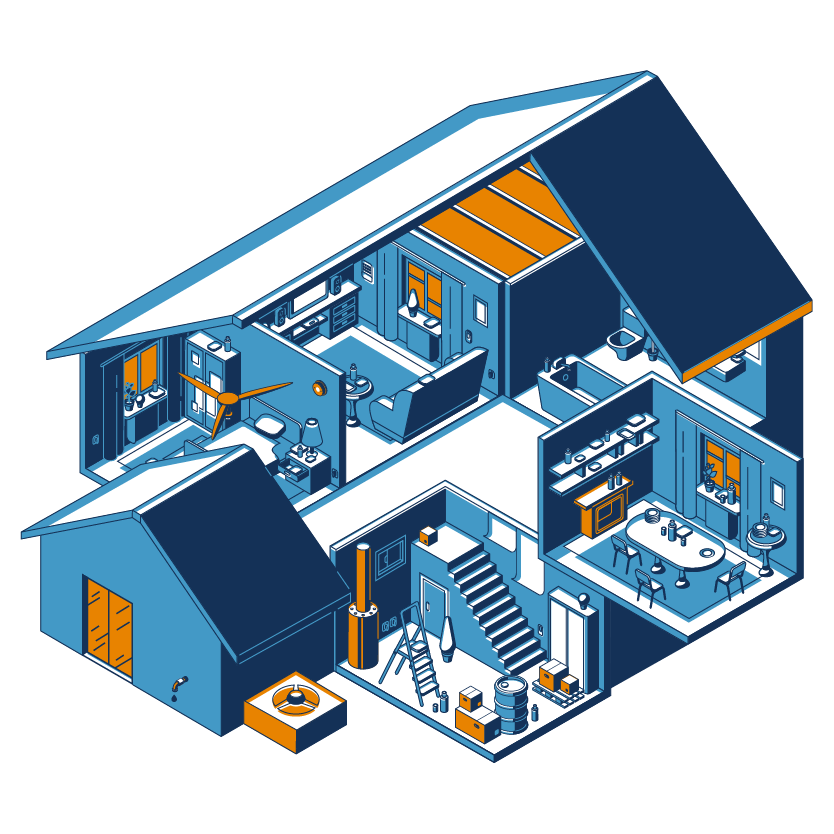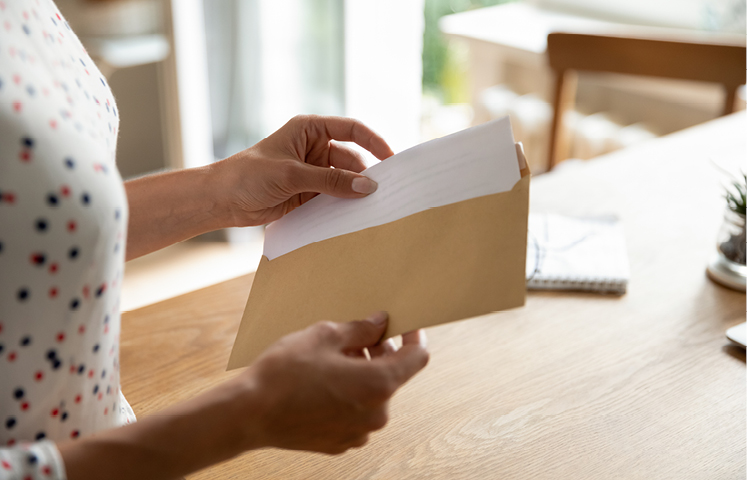As the winter months approach, it’s important to prepare your home inside and out. Following these top 10 winter maintenance tips can help to:
- Maximize heating efficiencies
- Lower utility bills
- Avoid unexpected expenses
- Extend the life of appliances and other systems

1. Check your gutters
Gutters can accumulate a lot of debris in the late summer and fall. If debris freezes inside your gutters, it can cause problems like slow drainage, ice dams or water overflow. This could potentially damage your home and result in expensive repairs. Clean your gutters before lower temperatures arrive and consider installing gutter guards to prevent debris from accumulating in the future.
2. Detach hoses and insulate outdoor faucets
Exterior pipes can freeze and burst if not properly disconnected before temperatures drop. Be sure to disconnect and drain all garden hoses from outdoor faucets and store them in a garage or other covered area. If your exterior faucets have shutoff valves, it’s recommended to turn them off. Lastly, maximize energy efficiency by covering your exterior faucets with an insulated cover.
3. Seal windows and doors
When temps begin to fall, prevent drafts that cause heat loss and increase your heating bill. You can seal unused windows with plastic or insulator kits and possibly add caulk to windows, door frames, pet doors, mail slots or wherever heat is escaping. Taking these precautions early will keep your house warm and your energy costs down.
4. Adjust ceiling fans
In the winter, adjust your ceiling fans to move in a clockwise direction by flipping the fan’s reverse switch. This will bring an updraft, circulating the hot air that naturally rises to the ceiling back down, and will help regulate the warmth of the room – as well as maximizing efficiency for your furnace.
5. Check your furnace
Your furnace will likely be running constantly throughout the winter months. It’s good practice to have your furnace inspected annually. You should also check your furnace filter every three months and change the filter if necessary.
6. Clean your chimney and fireplace
Before you cozy up to relax by the fireplace, get your chimney, vents and fireplace cleaned by a professional. Having your chimney cleaned and inspected can prevent chimney fires and carbon monoxide re-entering your home.
7. Check smoke and carbon monoxide detectors
While always important, it’s especially important to test your smoke and carbon monoxide detectors ahead of the winter months. Typically your home is full of trapped heat during the winter months, which can increase your exposure to carbon monoxide. With heating sources like a furnace or space heaters running more than usual, the possibility of a house fire increases, so ensuring detectors are in working order is all the more essential.
8. Add insulation
Adding insulation to your home can prevent heat loss and allow you to save on utility bills. Check your insulation annually before the winter months and replace any torn or missing insulation. Think about adding additional insulation to any areas with drafts, using rugs on hard floor surfaces in your home, and using tubular insulation to cover any pipes along exterior walls. When it comes to insulation, be sure to follow the correct R-value or insulation thickness recommended for your area.
9. Protect the A/C compressor
If you have an outdoor air conditioning unit, many manufacturers advise against wrapping the entire air conditioner during the winter. Wrapping the entire unit can invite rodents and cause condensation, which often leads to early corrosion. Consider putting plywood on top of the unit to protect the fan from damage caused by falling icicles.
10. Stock up on winter weather supplies
Winter weather is unpredictable, so don’t wait to check your supplies. See if your snow shovels or ice scrapers from last season need replacing. Make sure you’re stocked up on salt and ice melt, as these items can go fast in stores. When the first big winter storm comes through, you’ll be thankful you’re prepared.
Winter weather can be tough on a home. Follow these tips to prevent high utility bills, avoid problems down the road and ensure your home is winter-ready!








 Equal Housing Lender. SBA Preferred Lender. NMLS #440379
Equal Housing Lender. SBA Preferred Lender. NMLS #440379